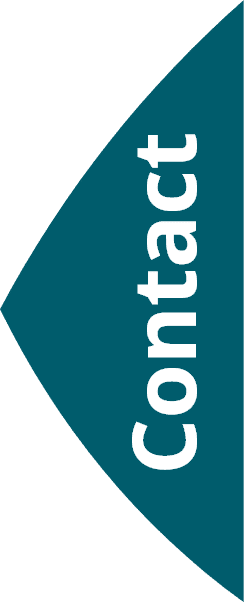
2024 Olympics – administrative formalities for coming to France


The Paris 2024 Olympic Games are fast approaching and drawing the world’s attention to the French capital. Whether you’re a keen spectator, a participating athlete or a company working for the event, coming to watch this historic event from abroad requires certain administrative formalities.
In this article, ITAMA tells you what you need to do, depending on your profile.
Administrative formalities for spectators
Nationals of the European Union (EU), the European Economic Area (EEA) and the European Free Trade Association (EFTA)
If you are a national of one of these countries or micro-states*, you do not need to do anything special. You enjoy freedom of movement and can enter France freely with your identity card or valid passport.
*Austria, Belgium, Bulgaria, Croatia, Cyprus, Denmark, Germany and Spain, Estonia, Finland, Greece, Hungary, Iceland, Ireland, Italy, Latvia, Liechtenstein, Lithuania, Luxembourg, Malta, Netherlands, Norway, Poland, Portugal, Czech Republic, Romania, Slovakia, Slovenia, Sweden, Switzerland, Andorra, Monaco, San Marino, Vatican City.
Third-country nationals exempt from the Schengen C visa requirement
Around sixty non-EU countries that are neither part of the EU nor the Schengen area are exempt from the Schengen C visa requirement. If you are a national of one of these countries*, you do not need to apply for a short-stay visa to travel to Paris for the Olympic Games. All you need is a valid passport.
However, the total of your previous and future stays must not exceed the 90 days authorised in the Schengen area per 180-day period. To check this, you can calculate your balance using this tool: https://www.visa-calculator.com/fr
*The full list of countries concerned: https://france-visas.gouv.fr/documents/d/france-visas/reglement-ce-2018-1806-fr
Nationals of other third countries
If you are not a national of the EU, EEA, EFTA or a visa waiver, you must obtain a Schengen type C visa.
To obtain one, you need to start applying online at the France visas website: https://france-visas.gouv.fr/web/france-visas/demande-en-ligne
You should start the process at least 2 months before your date of arrival in France, given the exceptionally high volume of applications.
The price of this visa varies:
- adults and children over 12: €80
- children aged between 6 and 12: €40
- children under 6: free
- spouses of French nationals and family members of EU-Schengen nationals: free of charge
- nationals holding non-biometric passports from Albania, Bosnia, Georgia, Northern Macedonia, Moldova, Montenegro, Ukraine and nationals of Armenia, Azerbaijan and Belarus: €35
The visa must be accompanied by travel insurance, otherwise it will not be issued.
Administrative formalities for members of the Olympic family
The members of the Olympic Family represent all persons belonging to the International Olympic Committee, the International Paralympic Committee, the International Federations, the National Olympic and Paralympic Committees, the Organising Committees of the Olympic Games and the National Associations – such as athletes, judges/referees, coaches and other sports technicians, medical staff attached to teams or athletes and media-accredited journalists, senior executives, donors, sponsors or other official guests – that agrees to be guided by the Olympic Charter, acts under the control and supreme authority of the International Olympic Committee, is included on the lists of responsible organisations and is accredited by the Organising Committee of the host Member State of the Olympic and Paralympic Games as a participant in the 2024 Olympic and/or Paralympic Games.
(Source: https://visas-fr.tlscontact.com/olympic_games/ma/maOUD2fr)
If you are a foreign national and a member of the Olympic family, here are the procedures to follow to enter France and be able to take part as such in the event:
Specific procedure for visa applications
If your nationality usually requires a Schengen C visa to enter France, you must apply for one at least 3 weeks before your departure.
Unlike “traditional” visa applications entered on the France Visa platform, applications must be sent to the Games Organising Committee, which then forwards them to the “Olympic Consulate” in Nantes.
This special consulate has been in place since 1 January 2024, specifically for the Olympic Games. Its aim is to ensure that applications are processed quickly, to avoid any delays caused by the saturation of the consulates. It centralises all visa applications from the “Olympic family” to relieve the administrative burden. These applications are processed directly by officials from the Ministry of the Interior and Overseas France (MIOF) and the Ministry of Europe and Foreign Affairs (MEFA), who have been specially assigned to the event.
If the application is accepted, the Olympic Consulate will issue a free dematerialised entry permit: the visa number is incorporated directly into the Olympic accreditation card. Another advantage of this exceptional procedure is that, exceptionally, the original of your passport will not be kept by the authorities while the application is being processed.
To be considered as part of the “Olympic family” and to follow this procedure, you must be :
- an athlete, judge, referee, coach or other sports technician
- a member of the medical staff attached to teams or athletes
- an accredited media journalist
- a donor, sponsor or other official guest
With official accreditation, you can come to France between 26 June and 8 October.
A long-stay visa is required for stays of more than 90 days in any 180-day period. “Talent – International renown” status is available to foreign nationals with an established national or international reputation (or who are likely to make a significant and lasting contribution to France’s economic development, regional planning or reputation) and who come to work in a scientific, literary, artistic, craft, intellectual, educational or sporting field.
Work permit
Stays of less than 90 days per 180-day period in connection with a sporting event are exempt from work permit requirements in certain cases.
You do not need to obtain a work permit if you are :
- a participant: a sportsperson, artist or scientist,
- a person accompanying a participant and taking part directly in the event
- a person accredited by the organisers: referees, coaches, doctors, sponsors, technical and organising staff, etc.
Secondment
Secondment is when a person works temporarily in a country other than their country of origin, often for a fixed period. When a worker is seconded, he generally remains linked to his original employer and continues to benefit from the working conditions and social protection of his country of origin, while complying with the laws and regulations of the country to which he is seconded.
There may be specific rules to follow in the host country, such as administrative formalities or tax obligations. If a foreign worker is seconded to France, they must have :
- completed a special declaration called a “declaration préalable de détachement” (prior declaration of secondment) on the dedicated website: https://www.sipsi.travail.gouv.fr/auth/login
- appointed a representative in France to communicate with the French authorities.
However, since the decree of 4 June 2019, you are exempt from the prior secondment declaration for stays of less than 3 months if you are:
- a sportsperson
- a referee
- a member of the sports support team,
- an official delegate attached to the practice or organisation of the sporting event.
Administrative formalities for companies involved in the Olympic Games
Work permits
If you are a foreign national from a third country (outside the EU, EEA or Switzerland) coming to work in France for the Olympic Games, you must be in possession of a work permit before starting your assignment.
There are no special arrangements for applications relating to the event, and the usual online procedure is the only one applicable: https://administration-etrangers-en-france.interieur.gouv.fr/immiprousager/#/authentification
It is recommended that you start the process at least 2 months before your arrival on French territory. As mentioned above, there is an exemption from the work permit requirement for assignments limited to 3 months for direct participants, those accompanying them and those accredited by the organisers.
However, if you are an expert in IT, architecture or engineering, you may also be exempt in certain situations and for an assignment of less than 3 months.
Secondment
The above-mentioned exemption from work permit requirements for sporting events does not cover sponsors or many of the sectors involved in the event, such as assembly, catering, transport and security at sports venues.
For them, it is necessary to follow the usual procedure: complete the prior declaration of secondment and appoint a representative in France to communicate with the French authorities.
Conclusion
Access to the Paris 2024 Olympic Games is subject to a set of specific administrative formalities, some of which may be waived depending on your profile. It is imperative to find out in advance and take the necessary steps as soon as possible to guarantee your participation in this historic event.

